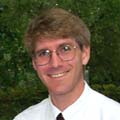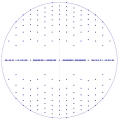


Contact David Anderson or Wayne Padgett to reserve your place today! On-site course offerings can be arranged.
Click here to register online for the Georgia Tech offering.
The course is designed for engineers, scientists, and technicians who need to do signal processing on fixed-point processors. Some exposure to signal processing is assumed but general concepts will be briefly reviewed the first day.
Over 90% of signal processing systems use finite-precision (fixed-point) arithmetic. This four-day course presents an in-depth look into designing fixed-point signal processing systems. The course includes extensive laboratory time so that participants can explore concepts as they are taught. The course begins with a brief review of pertinent DSP concepts and then continues to cover notation and fixed-point filtering fundamentals, noise analysis, scaling issues, multi-rate systems, and system performance analysis.
Each day’s instruction will include laboratory time designed to supplement the lectures. These laboratories are either interactive system design exercises or system analysis projects. The instructors will be available to work with participants.
Day 1
Dr. David V.
Anderson
(404) 385-4979
Dr. Wayne
Padgett
(812)
877-8185